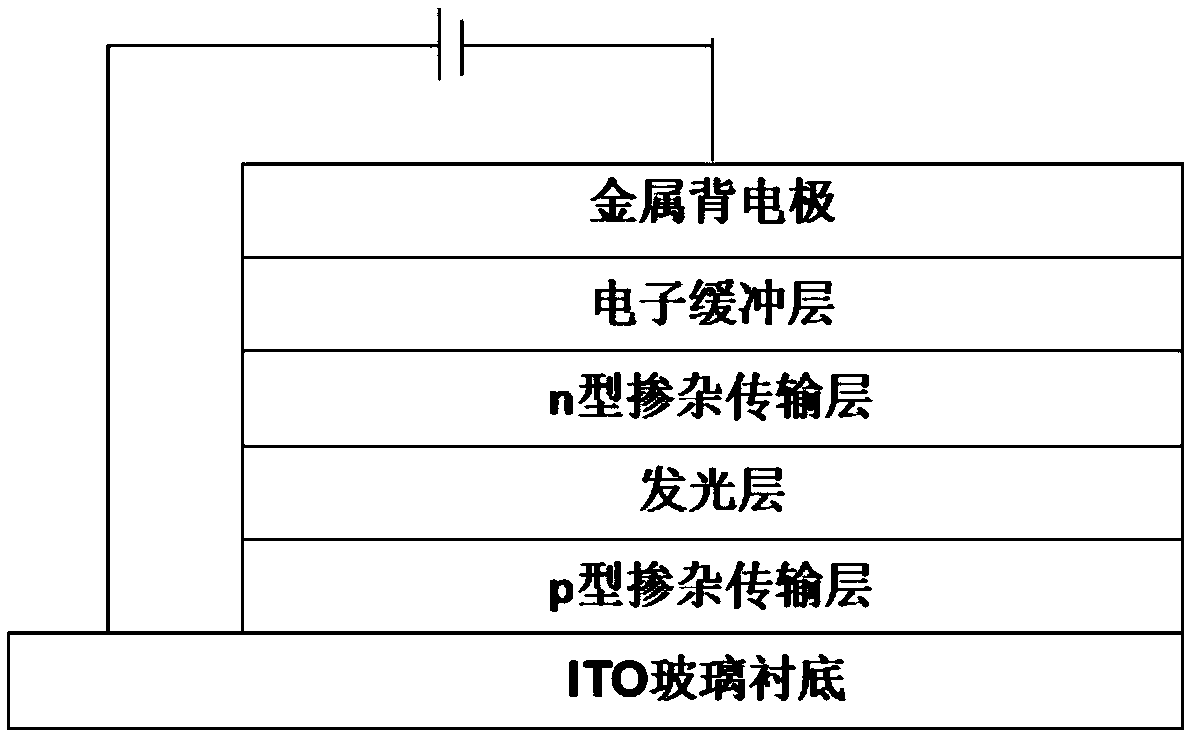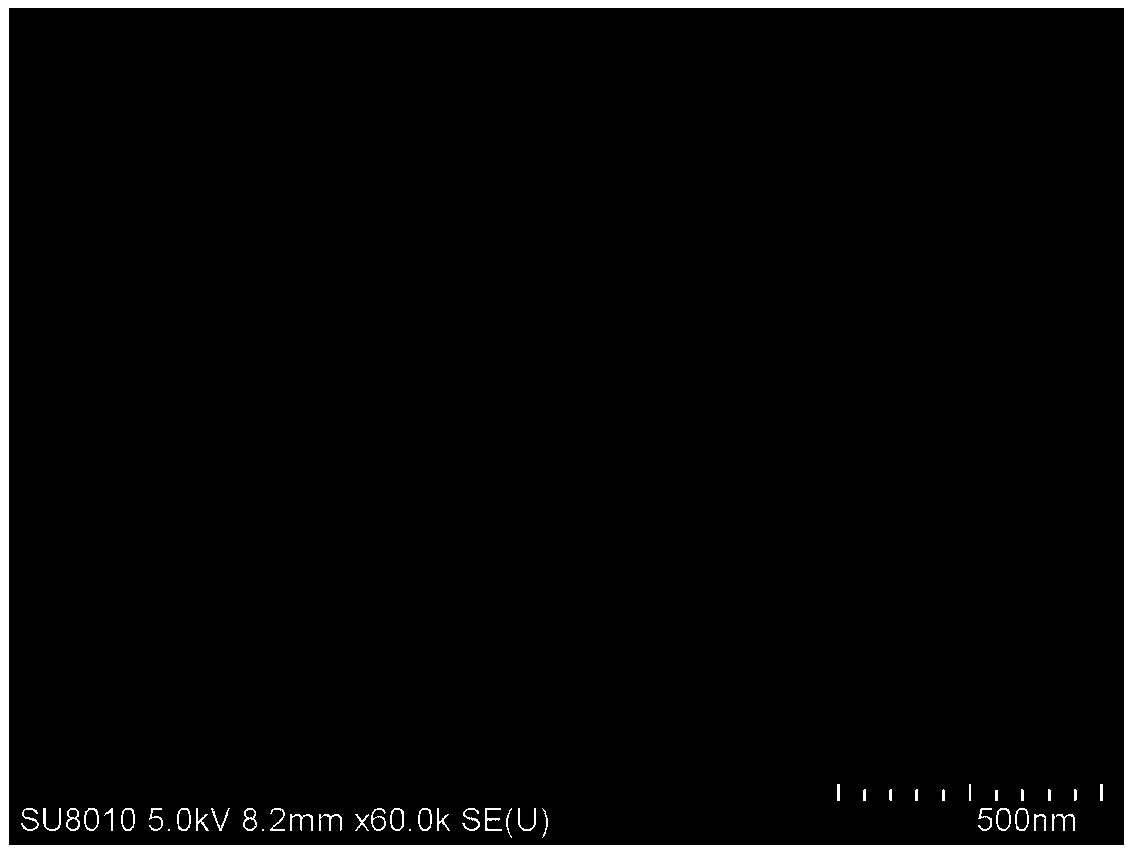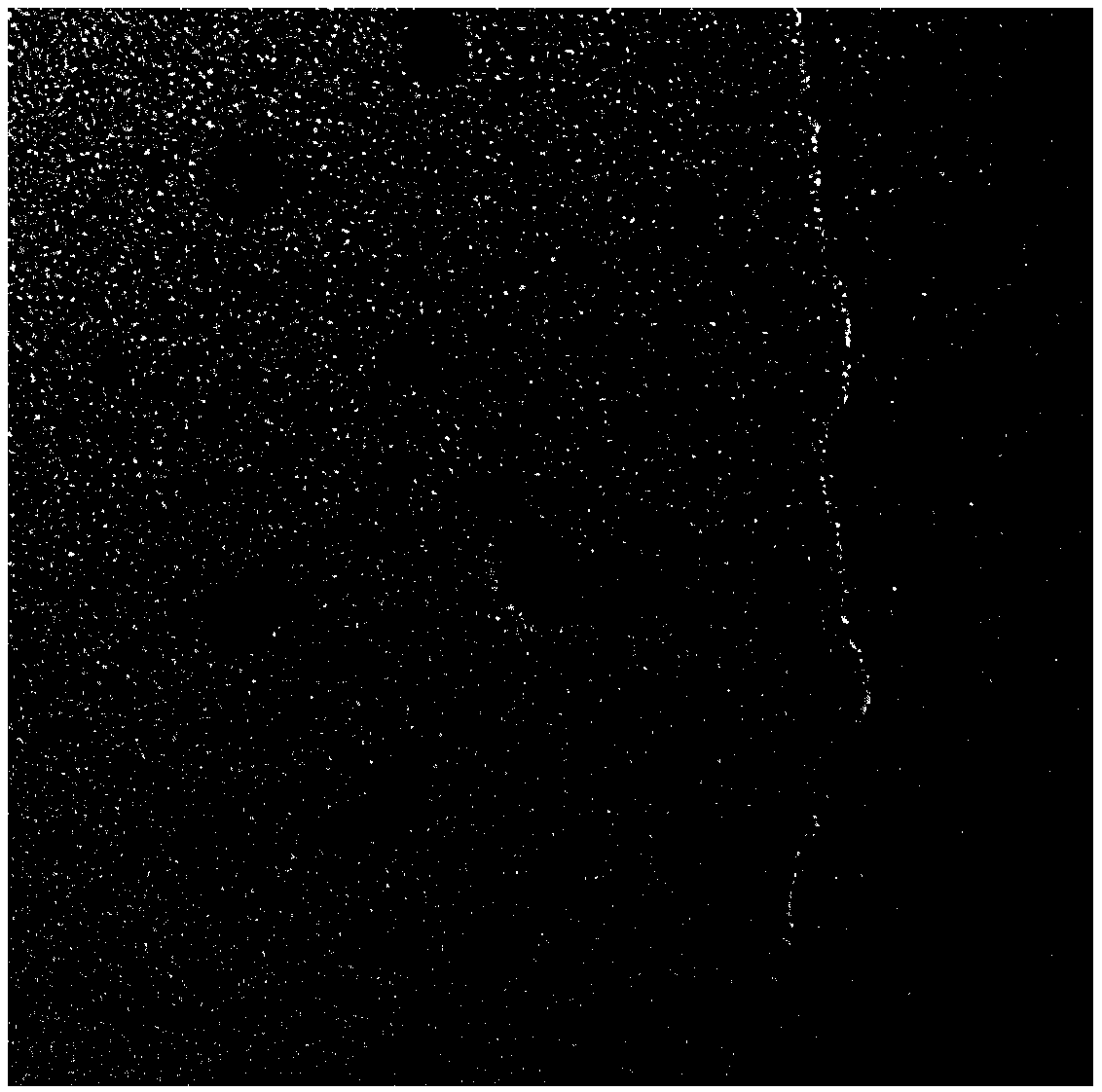Method for preparing low-voltage driving organic light-emitting diode in p-i-n structure by solution method
A p-i-n, light-emitting diode technology, applied in semiconductor/solid-state device manufacturing, electrical components, circuits, etc., can solve the problems of low carrier mobility, lower device drive voltage, high device drive voltage, etc., to improve transmission performance, The effect of lowering the driving voltage and lowering the hole injection barrier
- Summary
- Abstract
- Description
- Claims
- Application Information
AI Technical Summary
Problems solved by technology
Method used
Image
Examples
Embodiment 1
[0032] A solution method for preparing a p-i-n structure low-voltage driving organic light-emitting diode, the specific implementation steps are as follows:
[0033] 1. Etching of ITO glass substrate: The ITO glass substrate is chemically etched to form a strip electrode, and the etched ITO glass substrate is ultrasonically cleaned with ethanol, acetone, and isopropanol for 15 minutes, and then cleaned with deionized water. Rinse and dry at 150°C for 30 minutes;
[0034]2. Preparation of the p-type doped transport layer: Weigh 10 mg of PTAA powder with an electronic balance and dissolve it in toluene solution to prepare a PTAA solution with a concentration of 10 mg / ml. AgNWs were dispersed in ethanol solution at a concentration of 10 mg / ml (eg figure 2 shown). The PTAA solution and the AgNWs solution were uniformly mixed at a volume ratio of 20:1 to prepare a PTAA:AgNWs mixed solution. Place the spare ITO glass substrate in step 1 on the homogenizer, take an appropriate am...
Embodiment 2
[0040] The specific implementation method is different except following conditions, and other is identical with embodiment 1:
[0041] Preparation of the p-type doped transport layer: 10 mg of PTAA powder was weighed with an electronic balance and dissolved in toluene solution to prepare a PTAA solution with a concentration of 10 mg / ml. Mix the PTAA solution with the AgNWs solution at a concentration of 10 mg / ml at a volume ratio of 30:1. Place the spare ITO glass substrate in step 1 on the homogenizer, take an appropriate amount of PTAA:AgNWs mixed solution and drop it on the ITO glass substrate, spin-coat at a speed of 1500rpm for 30s, and coat the prepared PTAA:AgNWs The substrate of the film was annealed on a hot stage at 100° C. for 15 minutes, so that a p-type doped transport layer film with a film thickness of 60 nm was prepared on the ITO glass substrate.
Embodiment 3
[0043] The specific implementation method is different except following conditions, and other is identical with embodiment 1:
[0044] Preparation of the p-type doped transport layer: 10 mg of PTAA powder was weighed with an electronic balance and dissolved in toluene solution to prepare a PTAA solution with a concentration of 10 mg / ml. Mix the PTAA solution with the AgNWs solution at a concentration of 10 mg / ml at a volume ratio of 10:1. Place the spare ITO glass substrate in step 1 on the homogenizer, take an appropriate amount of PTAA:AgNWs mixed solution and drop it on the ITO glass substrate, spin-coat at a speed of 1500rpm for 30s, and coat the prepared PTAA:AgNWs The substrate of the film was annealed on a hot stage at 100° C. for 15 minutes, so that a p-type doped transport layer film with a film thickness of 60 nm was prepared on the ITO glass substrate.
PUM
 Login to View More
Login to View More Abstract
Description
Claims
Application Information
 Login to View More
Login to View More - Generate Ideas
- Intellectual Property
- Life Sciences
- Materials
- Tech Scout
- Unparalleled Data Quality
- Higher Quality Content
- 60% Fewer Hallucinations
Browse by: Latest US Patents, China's latest patents, Technical Efficacy Thesaurus, Application Domain, Technology Topic, Popular Technical Reports.
© 2025 PatSnap. All rights reserved.Legal|Privacy policy|Modern Slavery Act Transparency Statement|Sitemap|About US| Contact US: help@patsnap.com



